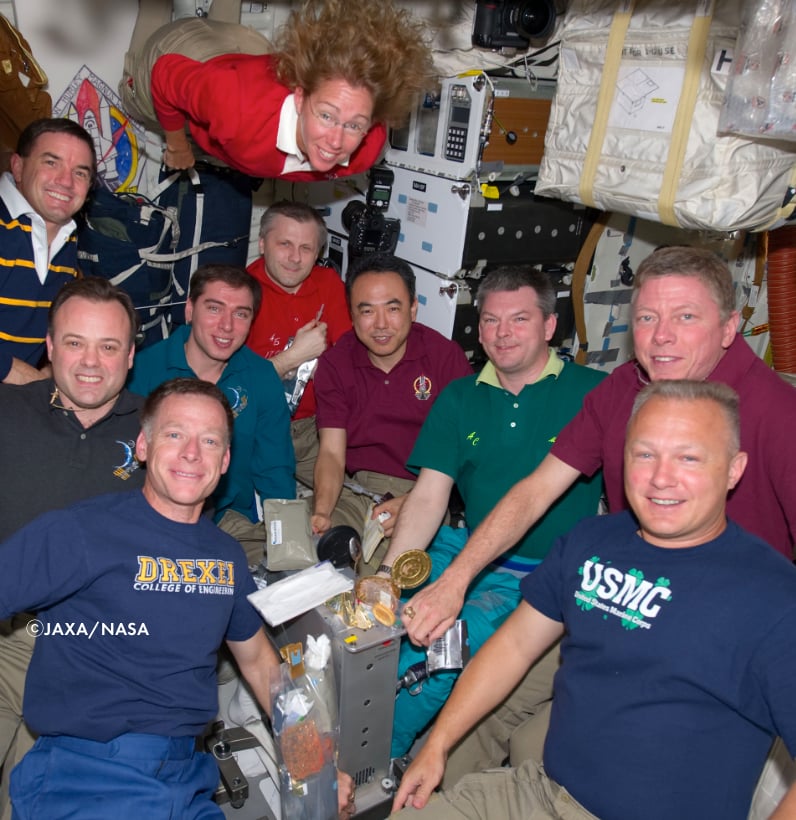Health Management for Astronauts
To ensure that astronauts can fulfill their missions in top condition, doctors and a wide range of other specialists work to maintain their health.

Health Management Technologies that aid to maintain health of astronauts
Space presents a harsh environment for humans. For short-duration flights, fluid imbalances and space sickness are the main issues. For long-duration flights, however, issues become more diverse including loss of bone mass and muscle deterioration, exposure to cosmic radiation, pollution of in-craft air and water, and psychological issues incurred from living in enclosed conditions.
To cope with these wide-ranging issues, in addition to medical experts, specialists from diverse fields including exercise physiology, neurophysiology, psychophysiology, radiation protection, environmental hygiene, and nutrition science work together to support the astronauts.
Food, clothing, and other daily necessities are also essential to ensuring that astronauts can live healthily.

Medical operations team to support
the health of astronauts

Management of astronauts’ health is a long-term undertaking. Their health has to be managed and maintained during training on earth, as well as during support missions. Once they have been assigned to a mission, there are three stages to their health management: before launch, during their stay in space, and after their return to earth. Responding to any issues during this time is the responsibility of the astronaut’s medical operations team, comprising flight surgeons and experts from various other fields.
Japanese space food and fresh foods
Two popular choices among astronauts
Meals are essential to maintaining the physical and psychological health of astronauts as they conduct important missions in the unique environment of space. Non-optimal dietary intake and nutritional imbalance could result in failure to fulfill the mission at hand.
To maintain the health of astronauts in space, Japanese space foods and fresh foods (i.e., fruits and vegetables) are carried to the International Space Station (ISS), on the condition that they can be preserved for a long period of time, and that they can withstand transport to space.

Daily necessities for a harsh weightless environment

In space, astronauts require many of the same necessities they need on earth, such as clothing, toothbrushes, and stationery.
In anticipation of future human exploration missions, and to ensure that astronauts can execute these missions successfully, JAXA solicits ideas for new, useful daily necessities that can be used in space, as well as solutions to space problems, from private entities and other organizations. In this way, JAXA is engaged in supporting new businesses that will benefit the future human space exploration.
Unless specified otherwise, rights to all images belong to ©JAXA



